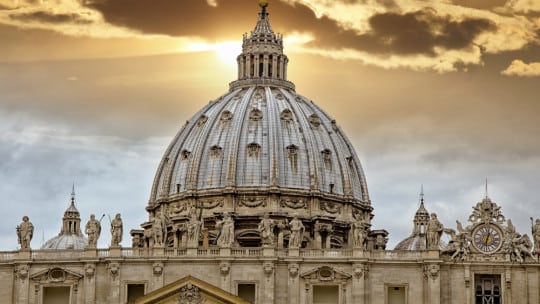
The Catholic Church is once again under fire for its mishandling of sexual abuse allegations against high-ranking members.
An Aug. 14 Grand Jury report detailed over 1,000 cases of sexual abuse by “more than 300 priests over a period of 70 years” by leaders in the Roman Catholic Church in Pennsylvania. According to an Aug. 14 New York Times article, the jury also found that the leaders had used their influence to persuade victims not to report their abuse to law enforcement, and that there "are likely thousands more victims whose records were lost or who were too afraid to come forward."
Allegations were first made against the church in Boston in 2002, and though it reportedly added new prevention programs to deter this kind of behavior, they clearly did not have the desired effect. The grand jury wrote, “Despite some institutional reform, individual leaders of the church have largely escaped public accountability.” Not only that, but the report continues to point out that nothing was done to protect the young boys and girls who were supposed to be in the care of these purported men of God.
The statute of limitations has passed on most of the cases—only two have led to criminal charges.
Several Catholic bishops in Pennsylvania released statements immediately after the report was filed, but there was obvious disagreement among the responses. And Pope Francis didn’t release a statement until the morning of Aug. 20, a full six days after the report came to light.
In the Pope’s letter, he quotes from the Bible: “If one member suffers, all suffer together with it.” Though the report only details abuses that happened in Pennsylvania, the Pope seems to be urging Catholics the world over to recognize that this impacts every member of the faith and that every effort should be made to ensure it doesn’t happen again. “The pain of the victims and their families is also our pain,” he says, “and so it is urgent that we once more reaffirm our commitment to ensure the protection of minors and of vulnerable adults.”
The letter is heartfelt and reaffirms the Vatican’s commitment to prevent this behavior from continuing in the church, but the question is why it took the Pope six days to pen a response. The cardinal rule during any crisis is to respond as soon as possible. Regardless of what the letter states, six days is quite a long time to wait for the leader of the church to voice his discontent.
Additionally, it seems that not all members of the church are aligned on messaging. The Aug. 14 Times report noted that “Pennsylvania Catholic bishops called for prayers for victims and for the church, [and] promised greater openness.” But Bishop David A. Zubik rejected the allegations that the church participated in a cover-up in a news conference. And Catholic League President Bill Donohue wrote an article claiming to “debunk” the grand jury report, asserting that it is a myth.
Had the Pope responded earlier, it may have been harder for contradictory remarks to come out from those who align themselves with the Catholic faith. As communicators know, when leaders are silent—even if only for a few days—it can cause a controversy, particularly one of this magnitude, to continue. And though the Pope should be the final word on all things relating to the Catholic church, this misalignment may cause speculation about whether all in the church are committed to discontinuing this kind of abuse.
Follow Hayley: @that_hayley
